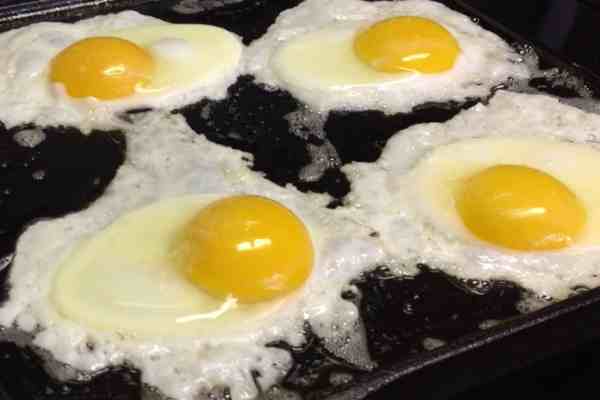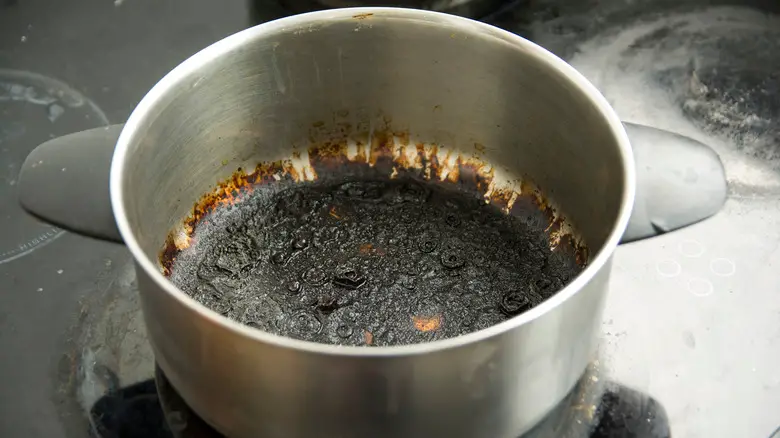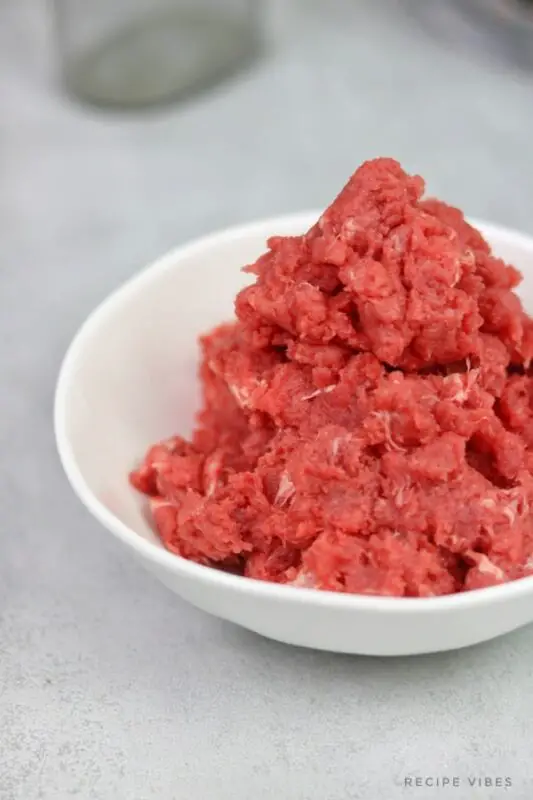Can I Boil Eggs in an Electric Skillet?
Electric skillets have become increasingly popular for cooking meals with speed, convenience, and efficiency. These appliances have been around since the early 1900s and have evolved into a versatile tool in the modern kitchen. However, one question that many egg lovers may ask is whether electric skillets can be used for boiling eggs.
Benefits and Drawbacks of Boiling Eggs in an Electric Skillet
Before delving into how to boil eggs in an electric skillet, it’s important to consider the pros and cons.
Advantages of Boiling Eggs in an Electric Skillet
- Speed: Cooking boiled eggs on an electric skillet can be much quicker than using a stovetop method, especially if you have a large batch to cook at once.
- Consistency: An electric skillet allows for more precise temperature control than boiling eggs on a stovetop, which means more consistent results for perfectly boiled eggs.
Potential Disadvantages or Drawbacks
- Uneven Heating: Some electric skillets tend to heat unevenly, which could result in some eggs undercooking while others are overcooked.
- Risk of Overcooking: Since electric skillets can heat up quickly, there is a chance that eggs may overcook if left unattended. This could lead to rubbery or tough yolks.
How to Prepare Electric Skillet for Egg Boiling
To prepare your electric skillet for boiling eggs, follow these steps:
- Choose the right skillet: A non-stick electric skillet is ideal for boiling eggs to prevent any sticking, but a regular electric skillet will work just as well.
- Preheat the skillet: Set the electric skillet to a medium heat and let it preheat for a few minutes.
- Use the right utensils: Use a slotted spoon or wire basket with a handle to place the eggs in and out of the skillet without breaking them.
- Add water to the skillet: Pour enough water into the skillet to cover the eggs by about an inch or two, depending on how many eggs you’re planning on cooking.
Boiling Time and Temperature
Determining the appropriate heat level and time frame for boiling eggs on an electric skillet is crucial. Unlike stovetop methods where you can visually gauge the cooking process, with electrical skillets, it may be more challenging to get your boiled eggs just right. Here are some pointers:
- Determing egg size: The size of your egg determines your boiling time frame. Look online for boiling timings for small, medium, large, and extra-large eggs
- Factors that impact timing:The altitude at which you are could sometimes impact boiling time. For example, if you live in high altitude areas above sea level, boiling potatoes could take longer
Indications of Done Eggs
You may use various indicators to determine whether your egg is perfectly boiled. Below are some of these indicators:
- Sight: A hard-boiled egg should have a firm white and yellow yolk.
- Texture: A boiled egg’s texture should be smooth and solid, without any cracks or runny areas inside the white or yolk.
- Smell: Perfectly done boiled eggs have no smell whatsoever
- Sound: If you need to tap a boiled egg, it would emit a hard sound.
Methods for Egg Shell Removal
The easiest way to remove the shell from a boiled egg slightly varies, depending on individual preferences. These methods are straightforward enough:
- Cool in ice water: After boiling the eggs, put them in ice-cold water to cool. The shells come out quickly when the eggs cool down
- Tap: If you don’t want to cool them in ice water, gently tap the shells with a hard object until they crack in several places. Peel off the shell in bigger pieces or small fragments depending on how you cracked them open.
- Spoon: You may also use a spoon by carefully punching through the top of the wide end of an egg and scooping it out.
Adding Flavor to Boiled Eggs Prepared on Electric Skillet
If you want to add more flavor to your boiled eggs, here are some ideas:
- Add spices while cooking: Adding some salt or other preferred spices can give boiled eggs an extra taste .
- Sous vide method: The sous vide method is another approach that ensures perfect results and enables you to use various aromatics and herbs for boiling flavor.
Maintenance & Care
After preparing hard-boiled eggs in an electric skillet, it’s essential to clean the skillet appropriately. Since eggs contain high acidic content, this could create build-up on the cooking surface over time. Here are tips and pointers:
- Properly wash the skillet: To maintain the electrical kettle, you need to wash it as per user instructions with mild dish soap and a non-abrasive utensil sponge after each use.
- Use distilled vinegar:You may use distilled vinegar solution if there are stuck-on food items or residues from boiled eggs that were difficult to remove.
- Disassemble removable parts:To avoid damaging the skillet’s electric components, disassemble any removable components first (e.g., cord, knob) before washing them and ensuring you cleaned them separately
Frequently Asked Questions (FAQs)
If you still have questions about boiling eggs using an electric skillet, see this shortlist of common questions and their answers below:
- Can I add vinegar to achieve harder or friendlier texture? Answer : Yes, you can use either white or cider vinegar when boiling eggs for a firmer texture.
- How long can I store boiled eggs? Answer: Fresh boiled eggs stored in the refrigerator should last around one week.
- How to cook soft boiled eggs on electric skillet?Answer: Add water until half of the pan is covered and bring it to a boil. Using a slotted spoon, gently lower eggs into the pan one at a time. Lower each egg in carefully like it is a delicate piece of pottery. Once all eggs are lowered into the pan, cover tightly with a lid. Turn off the heat and let eggs cook for six minutes
Conclusion
In conclusion, to achieve perfect boiled eggs on an electric skillet, you need to ensure that you’re using the correct approach. With the right preparation, heating, and techniques, boiling eggs on an electric skillet can be a great option – especially if you are dealing with high numbers of boiled eggs.
Remember that it’s essential also to care and maintain your electrical skillet once you’ve used it. By following the correct cleaning procedure, this will guarantee that your electric skillet is always in tip-top condition.
Finally, it’s worth noting that electrical skillets can be versatile appliances that can make your cooking process simpler and more efficient. Why not use this technique as a way to elevate your egg boiling game or explore other means of using an electric skill set?
Can I cook eggs in an electric skillet?
Yes, you can cook eggs in an electric skillet. In fact, it’s one of the easiest and most convenient ways to cook them. You just need to heat the skillet to the desired temperature and then crack the eggs into the pan.
How do I boil eggs in an electric skillet?
To boil eggs in an electric skillet, start by filling the pan with water and bringing it to a boil. Once the water is boiling, add your eggs and let them cook for about 10 minutes. Then, remove them from the pan and place them in cold water to stop the cooking process.
What are some benefits of boiling eggs in an electric skillet?
Boiling eggs in an electric skillet has several benefits. First, it’s a very easy and convenient method that doesn’t require any special equipment or tools. Second, it allows you to easily control the temperature and cooking time to get perfectly cooked eggs every time. Finally, it’s a great way to save time and energy since you can cook multiple eggs at once.
Are there any tips for boiling eggs in an electric skillet?
Yes, there are a few tips that can help ensure that your boiled eggs turn out perfectly. Firstly, make sure to use enough water to completely cover your eggs. Secondly, don’t boil the water too vigorously as this can cause the shells to crack. Finally, gently stir your eggs once they’re cooking to help distribute heat evenly throughout the pan.






